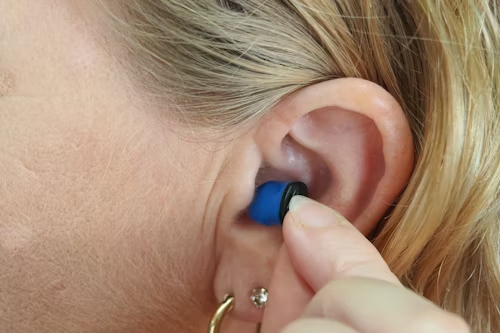Foods That Cause Ear Wax: How Your Diet Can Impact Ear Health
Surprising Connections Between Diet and Ear Health
Did you know that what you eat could influence the production of ear wax? While cerumen—commonly called earwax—is a natural substance designed to protect and lubricate the ear canal, consuming certain foods may lead to an excessive build-up. Dairy, for example, often found in your morning coffee, might trigger changes in your body’s response, potentially affecting ear wax production. Similarly, heavily processed foods or those high in sugar could also contribute to discomfort, ear blockages, or even hearing issues over time.
From my personal experience, skipping my usual toast and opting for a balanced meal has helped reduce the times my ears feel “off.” It’s fascinating how your dietary choices can directly impact ear health. Making small changes, like reducing fatty or processed foods, can prevent that annoying nuisance of earwax buildup. So, next time you reach for a snack, think about how your diet might be influencing your ears.
Introduction: Understanding Ear Wax and Its Causes
The ear canal is home to specialized glands that produce cerumen, commonly known as ear wax. This yellowish material plays a beneficial role in protecting the inner ear from dust, dry air, insects, and microbes. It also acts as a self-cleaning mechanism by helping to remove dead skin cells, hair, and dust particles that may accumulate.
As wax gradually moves toward the outer part of the ear, it sloughs off with the skin, carrying away debris and maintaining ear hygiene. However, when the body produces too much earwax, it can lead to accumulation, which may become irritating, causing itching or discomfort and even affecting hearing.
If you are struggling with excessive earwax production, you may be frustrated by its constant accumulation despite frequent cleaning. Some foods can contribute to the overproduction of ear wax, leading to more frequent blockages and discomfort. Understanding the link between your diet and wax buildup can help you prevent issues like dizziness and hearing problems. If you’re experiencing these symptoms, it’s important to identify the cause of the wax overproduction and consider treatments that can help manage it.

Diet and Foods That Cause Ear Wax
Diet is not the sole factor responsible for ear wax production, but certain foods can affect its consistency and quantity. Dairy products, for example, have been linked to an increase in earwax production in some individuals, with anecdotal evidence suggesting a correlation between dairy intake and ear issues. Although scientific evidence is limited, reducing or eliminating dairy from the diet may help some people manage their ear wax issues. Spicy foods, gluten, and sugar are also believed to stimulate ear wax production, potentially leading to excessive production and an increased likelihood of blockages. Moderation in consuming these foods may help regulate ear wax production and support ear health.
1. Gluten and Its Impact on Ear Wax Production
Gluten, a protein found in wheat, rye, barley, and seitan, can be a food cause of ear wax build-up, especially for individuals with gluten intolerance. While these foods are healthy in moderation, the naturally occurring gluten can trigger increased earwax production. For those with celiac disease or gluten intolerance, consuming excess amounts of gluten can lead to more ear wax production. It has been noted in my clinic that individuals with gluten sensitivity experience higher rates of ear wax buildup when not avoiding gluten. To lower the chances of excessive build-up, it’s advisable to choose well-processed gluten or opt for gluten-free alternatives, which help to lower the rate of wax production. Rice, corn, and other gluten-free foods are great substitutes that can support ear health without triggering wax production.
2. Dairy Products and Their Role in Ear Wax Production
Consuming dairy products like milk, butter, cheese, and yogurt in high quantities may promote excessive production of earwax in the ear canals. The lactose in these foods can affect the body, especially for those with lactose intolerance, leading to problems like increased ear wax production. While lactose doesn’t harm the body in general, it can adversely impact those who are sensitive to it, causing issues like excessive wax buildup. Dieticians suggest that reducing dairy intake or opting for dairy-free products may help lower the chances of such problems. People with lactose intolerance or a history of ear diseases may experience this more frequently, so a shift to lactose-free or fat-free alternatives could make a noticeable difference.
3. Caffeine and Its Effect on Ear Wax
Consuming caffeine-rich products like coffee, tea, and energy drinks can sometimes trigger an increase in impacted wax. If you consume these daily, it may be a good idea to have your ears checked by a specialist. They might recommend microsuction or an ear wax removal procedure to help manage the buildup. Although caffeine is a known stimulant that affects the body in various ways, there is no direct connection between caffeine consumption and ear wax production. However, if you experience an increase in ear wax after consuming caffeine, it could be due to factors like age, genetics, or environmental influences.
It’s also possible that overconsumption of caffeine foods could lead to dryness in the skin and mucous membranes, causing the glands in the ear canal to produce more wax to moisten the area. If you’re frustrated by blocked ears, reducing or even cutting out caffeine completely may help, along with drinking healthy water regularly to stay hydrated. Additionally, avoiding high quantities of caffeine and alcohol may help prevent further build-up and avoid ear problems. A balanced diet with omega-3 fatty acids, such as salmon, sardines, and other fish, can contribute to better ear health, slowing down wax production and keeping your ears wax-free and clear.
4. Sweet Foods
While sweet foods, especially chocolate, are commonly thought to contribute to various health issues, there is no strong evidence linking them directly to ear wax production or buildup. However, consuming a diet high in sugar and processed foods can have negative impacts on overall health, such as inflammation and a weakened immune system. These factors may increase the risk of developing health conditions like eczema or psoriasis, which could contribute to the overproduction of ear wax. While sweet foods themselves may not directly affect ear wax, the effects of a poor diet on overall health can potentially influence ear wax buildup indirectly.
5. Salty Foods and Their Effects
Excessive salt intake in the diet, especially from salty foods, can have unintended effects on the body, including water retention and swelling. This fluid imbalance may impact the ear canal’s ability to regulate wax production. While salt is necessary for health, excessive consumption can throw the balance off. To help maintain a healthy balance, consider choosing low-sodium alternatives. It’s important to control how much salt you consume daily to avoid the risk of contributing to excess ear wax buildup, as the ear canal can be affected by this imbalance.

What Foods and Drinks Can Help Soften Ear Wax?
Staying hydrated is essential for your bodily functions, including the production and consistency of ear wax. If you become dehydrated, the glands in the ear may produce thicker and drier ear wax, which can lead to discomfort and an increased risk of blockages. To avoid this, make sure you’re drinking enough water to maintain optimal hydration, which helps promote healthier ear wax and supports overall ear health.
A diet that includes fruits and vegetables, especially those that are high in vitamin C and antioxidants, can also help keep your ear canal moisturized. These foods support overall health by strengthening the immune system, which may reduce the risk of infections and balance ear wax consistency, preventing changes in its odour or texture. A well-balanced diet ensures proper water balance in the body, promoting healthier ear wax production.
Maintaining Optimal Ear Hygiene
While certain foods may lead to increased ear wax production in some individuals, it is essential to prioritize overall ear hygiene. Keeping your ears clean and following the right tips can help maintain optimal ear health. Regular cleaning, avoiding excessive ear wax buildup, and using gentle ear care products are important steps. Maintaining a balanced diet can also play a role in supporting ear health and preventing issues related to ear wax.
1. Gentle Cleaning
When it comes to ear hygiene, it’s important to avoid using objects like cotton buds or Q-tips as they can push the wax deeper into the ear canal and cause potential damage. Instead, you should gently clean the outer part of your ears using a soft cloth or towel after a shower. This simple practice helps maintain healthy ears without causing harm, promoting better overall ear care.
2. Ear Drops
Ear drops are a helpful solution for those looking to soften ear wax and make its removal easier. Over-the-counter options, such as olive oil, mineral oil, and hydrogen peroxide, are commonly used to facilitate the process. These drops work by softening the wax, allowing it to loosen and eventually clear out of the ear canal. It’s important to follow the instructions on the package carefully, as improper use can lead to further discomfort. If you have any concerns or if the wax buildup persists, it’s best to contact your general practitioner for further advice.
3. Regular Check-ups
Visiting an ear, nose, and throat specialist for regular check-ups is a great way to monitor your ear health. By scheduling these appointments, you can address any concerns and ensure your ear hygiene is on track. It’s important to see a specialist promptly if you notice changes, as this can help prevent any issues from becoming more serious.
Conclusion
Understanding the connection between foods that cause ear wax and ear health can make a big difference in preventing discomfort and blockages. By being mindful of what you consume, you can help regulate ear wax production and maintain better ear hygiene. If you notice excessive wax buildup, consider reducing foods like dairy, gluten, or caffeine, and stay hydrated with water-rich foods. For added protection, regular check-ups with an ear, nose, and throat specialist will help monitor your ear health and ensure you stay on top of any potential concerns. Simple lifestyle changes can lead to healthier ears and fewer problems with ear wax accumulation.
FAQs
1. Can dairy cause ear wax buildup?
Yes, consuming large amounts of dairy products has been linked to increased ear wax production in some individuals. Reducing dairy intake might help manage wax buildup.
2. Does gluten contribute to ear wax issues?
For those with gluten intolerance or celiac disease, consuming gluten can trigger ear wax overproduction. Opting for gluten-free foods may reduce the risk.
3. How can I soften ear wax at home?
Ear drops containing olive or mineral oil can soften ear wax, making it easier to remove. Be sure to follow the instructions carefully and consult your doctor if you have concerns.
4. Is it necessary to see a specialist for ear wax problems?
If you experience excessive wax buildup or discomfort, it’s a good idea to schedule regular check-ups with an ear, nose, and throat specialist to ensure your ear health is monitored properly.
5. Can sugary foods affect ear health?
While sweet foods don’t directly cause ear wax buildup, a poor diet high in sugar and processed foods can negatively impact overall health, possibly indirectly contributing to ear wax issues.
